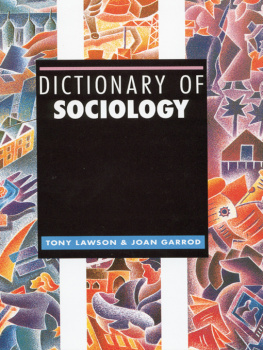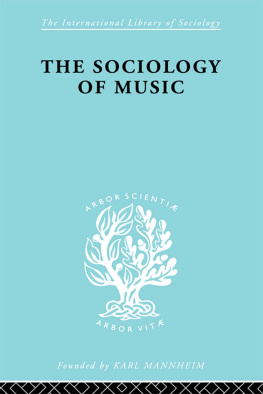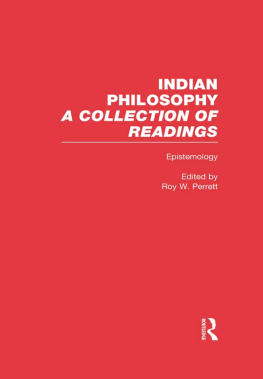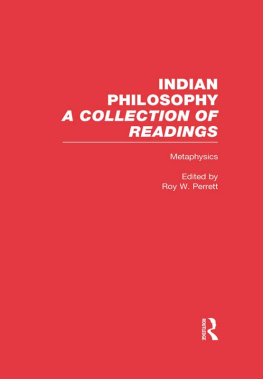Garrod Joan - Dictionary of sociology
Here you can read online Garrod Joan - Dictionary of sociology full text of the book (entire story) in english for free. Download pdf and epub, get meaning, cover and reviews about this ebook. City: Chicago, London, Great Britain, year: 2001, publisher: Routledge;Fitzroy Dearborn, genre: Politics. Description of the work, (preface) as well as reviews are available. Best literature library LitArk.com created for fans of good reading and offers a wide selection of genres:
Romance novel
Science fiction
Adventure
Detective
Science
History
Home and family
Prose
Art
Politics
Computer
Non-fiction
Religion
Business
Children
Humor
Choose a favorite category and find really read worthwhile books. Enjoy immersion in the world of imagination, feel the emotions of the characters or learn something new for yourself, make an fascinating discovery.
- Book:Dictionary of sociology
- Author:
- Publisher:Routledge;Fitzroy Dearborn
- Genre:
- Year:2001
- City:Chicago, London, Great Britain
- Rating:4 / 5
- Favourites:Add to favourites
- Your mark:
- 80
- 1
- 2
- 3
- 4
- 5
Dictionary of sociology: summary, description and annotation
We offer to read an annotation, description, summary or preface (depends on what the author of the book "Dictionary of sociology" wrote himself). If you haven't found the necessary information about the book — write in the comments, we will try to find it.
Dictionary of sociology — read online for free the complete book (whole text) full work
Below is the text of the book, divided by pages. System saving the place of the last page read, allows you to conveniently read the book "Dictionary of sociology" online for free, without having to search again every time where you left off. Put a bookmark, and you can go to the page where you finished reading at any time.
Font size:
Interval:
Bookmark:

Though we have worked closely as a team, we could not have carried out the work for the dictionary without many invisible supporters, too numerous to mention. However, we would like to record our gratitude to Ray Garrod and to Tim Gregson-Willianis for their encouragement. The most important thanks should go to the hundreds of students we have taught over the years who, through their questions, have honed our sociological understanding. Nevertheless, we recognize that sociology is not an exact science and that not everyone will agree with the way we have defined every concept. We have taken every care to be as factual as the subject allows and any mistakes are our responsibility.
abortion: the termination of a pregnancy by artificial methods. It has been the subject of often violent disagreement about the morality of allowing legal termination. This has been an important debate for sociologists to study. The debate arouses such passion that new social movements have been founded on the back of the debate.
absenteeism: when workers take time off work without any real reason. The degree of absenteeism in a company is difficult to determine, because it is problematic to decide, for example, whether a worker absent from work with a bad back is genuinely sick or taking time off without good cause. The degree of absenteeism is sometimes used as a measure of work satisfaction . For example, a great increase in absentee rates on the shop floor following a change in work practices may indicate unhappiness with the new arrangements. (See industrial conflict.)
absolute poverty: the lack of the basic necessities (food, shelter, and access to clean water and medical care) with which to sustain a healthy existence. Absolute poverty tends to be associated with certain developing countries, but it can be argued that this type of poverty also exists in many developed industrial societies among the destitute and the homeless . (See poverty of lifestyle, relative poverty.)
absolute rate of mobility: the total number of movements up and down the class structure within a given period. It is distinct from the relative rate of mobility . The absolute rate since World War II has been large, with a great deal of upward social mobility occurring. (See forced mobility .)
abstracted empiricism: a term used by C. W. Mills to describe the collecting of empirical evidence for its own sake without the context of a theory to make sense of it. (See theory .)
academic machismo: the domination of education by men, and agendas set by men. (See androcentricity .)
accommodation: the process whereby different social groups come to live together peacefully without resolving their differences or losing their distinct identity. It is often used in describing the mutual tolerance of different ethnic groups living in the same society. (See assimilation .)
accounting process: the way in which individuals have common-sense understandings that account for or make sense of the activities they undertake. In the sociology of organizations, the accounting process has been used by Garfinkel, among others, to show how individuals in a bureaucracy have a common-sense understanding of how bureaucracies work, which they employ to make sense of what they actually do in their everyday lives. That is, individuals call upon the concept of bureaucracy when they try to explain what they are doing in their work lives.
acculturation: the process by which a group takes on the behavior and values of a dominant culture; also the way in which different cultural groups influence one anothers cultural patterns.
achieved status: a position in society that individuals gain through their own efforts, rather than being born into. In modern industrial societies, education is the main way in which individuals can achieve a particular status through acquiring qualifications. The greater the importance of achieved status in a society, the more open that society is likely to be. (See ascribed status .)
achievement: an ideological formation of industrialized societies, which states that individuals ought to be rewarded for their efforts and attainment, rather than for being born into a particular background. The idea is important ideologically because it provides the legitimation for industrial societies. The education systems of industrial societies are based on the idea of achievement; that is, by being provided with the opportunities to fulfill their abilities, children will rise in the social structure to their appropriate position, according to their talent . (See ascription .)
achievement principle: a principle developed by Offe, argued to be a central ideological construct of contemporary society, which states that rewards given to individuals in capitalist societies are a result of effort or qualifications, rather than particularism . However, Offe argued that the achievement principle cannot work in practice because of the multiskilled nature of contemporary societies, in which there are so many different skills that the notion of a hierarchy of skill becomes meaningless.
act: the basic unit of social life, and a unit of behavior that usually involves some purpose or meaning attached to it by the person carrying it out (the actor). (See behavior .)
action: one of the basic concepts of sociology, a term to describe the capacity of the individual actor to do something. The concept implies a contrast with instinct, where behavior is unthought. Action therefore implies intention or meaning, with the actor being purposeful in what he or she does. Giddens argues that action should also be seen as implying two other things:
that everyone is a highly skilled, knowledgeable agent
that everyone is a capable human agent. That is, action implies the capacity to do otherwise, to choose not to do the action but something else instead.
action research: where sociologists introduce planned changes into peoples behavior, so that the effects can be studied. It is often to be found in classroom research, where changes are introduced in the attempt to improve educational attainment.
action theory: a perspective that begins from individuals and the way that they interact with each other to create society through their everyday actions. It is in contrast to structural theories, which begin at the level of society. There are many forms of action theory, and although they have a long history, they rose to prominence in the 1970s, in reaction to the dominance of functionalism . Action theories are voluntaristic , in that they emphasize the free will of the individual and the view that the activities of individuals make a difference in society. (See dramaturgy; ethnomethodology; phenomenology .)
active audience: a term that describes the receivers of media information and suggests they should not be seen in a passive way, but as actors who interact with media material and are influenced by the social context in which they view content. Past experience, current beliefs , family, and friends are examples of factors that intersect with media viewing.
active citizen: a term used to describe the duties and responsibilities of a member of society toward others. The concept is associated with New Right sociologists, who argue that rather than being concerned with their rights, citizens should focus on how they can contribute to the well-being of society in an activist way. It is therefore a contrast to the idea of a dependency culture and constitutes a moral commitment by citizens to their compatriots.
active society: see postindustrial society
activism: see political participation
actor: see act
Font size:
Interval:
Bookmark:
Similar books «Dictionary of sociology»
Look at similar books to Dictionary of sociology. We have selected literature similar in name and meaning in the hope of providing readers with more options to find new, interesting, not yet read works.
Discussion, reviews of the book Dictionary of sociology and just readers' own opinions. Leave your comments, write what you think about the work, its meaning or the main characters. Specify what exactly you liked and what you didn't like, and why you think so.






